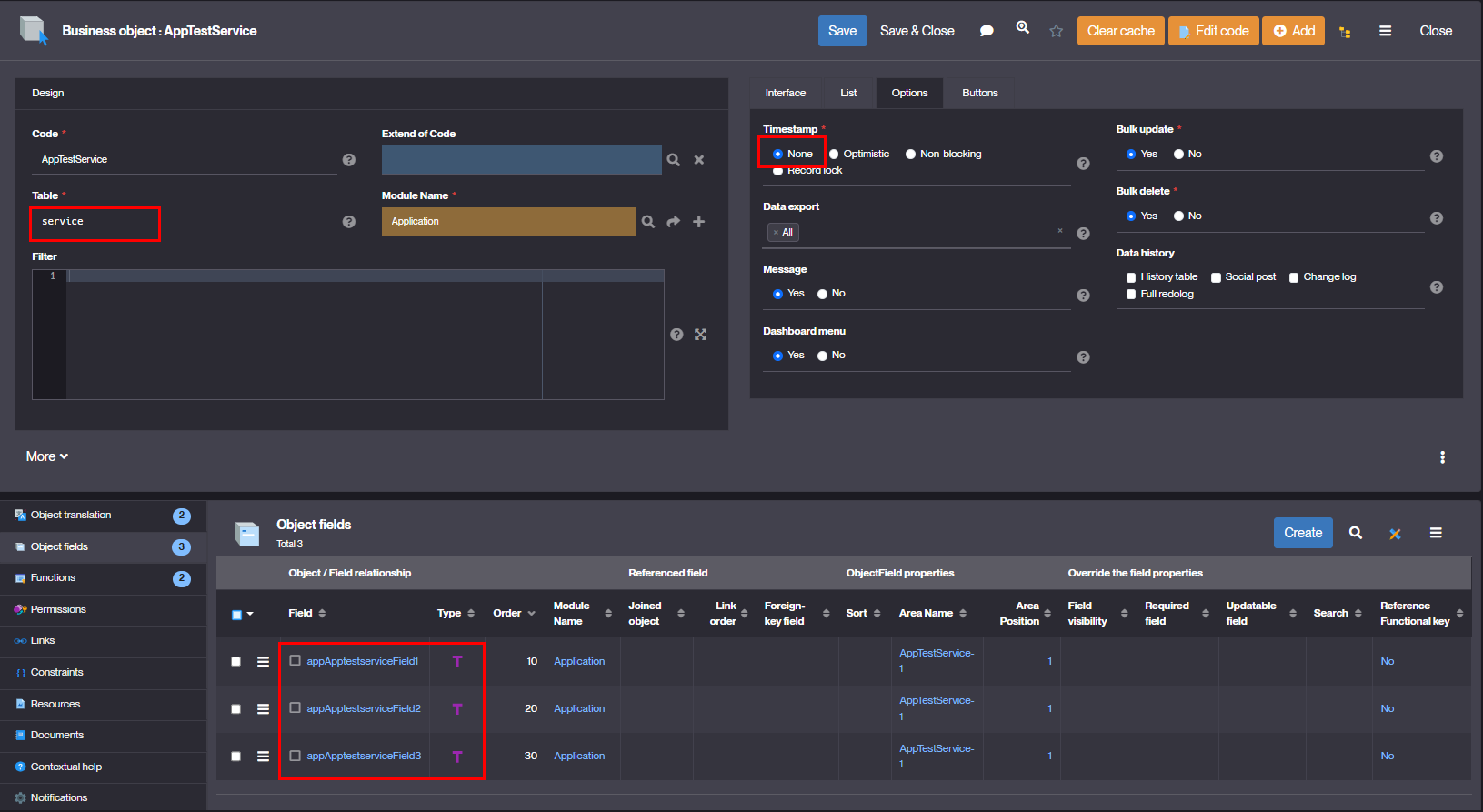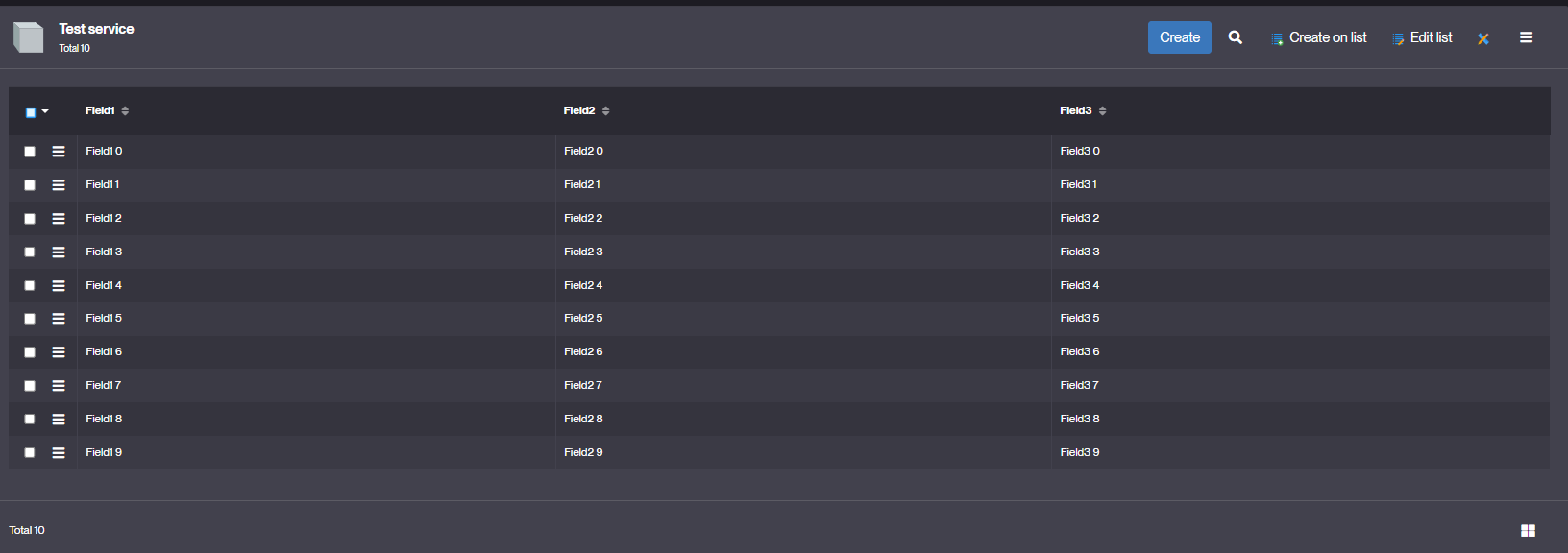Custom service objects
This document describes how to configure and implement a custom service objects.
A service object is a business object which interact with a remote service (e.g. a remote system API).
The helper class com.simplicite.util.ObjectService offers a "framework" for implementing a such service object.
Minimalistic example
Let's configure a minimal service object with 3 text fields:

This object is configured to be "list-only" (no form).
Then let's implement the following Java class for this object:
package com.simplicite.objects.Application;
import java.util.ArrayList;
import java.util.List;
import com.simplicite.util.ObjectField;
public class AppTestService extends com.simplicite.util.ObjectService {
private static final long serialVersionUID = 1L;
public static final long NB_ROWS = 10;
@Override
public long countService() {
return NB_ROWS;
}
@Override
public List<String[]> searchService(boolean pagine) {
List<String[]> rows = new ArrayList<>();
for (int i = 0; i < NB_ROWS; i++) {
String[] row = new String[getFields().size()];
for (ObjectField f : getFields())
row[f.getIndex(this)] = f.getDisplay() + " " + i;
rows.add(row);
}
return rows;
}
}
And here is the resulting list:

Note that, in all cases, the countService is called first by the generic UI, and then the searchService.
In some real-life cases cases there is no "count-only" capability offered by the remote service.
In such a case the actual "search" must be done done in the countService and served by the searchService like this:
@Override
public long countService() {
List<String[]> rows = new ArrayList<>();
for (int i = 0; i < 10; i++) {
String[] row = new String[getFields().size()];
for (ObjectField f : getFields())
row[f.getIndex(this)] = f.getDisplay() + " " + i;
rows.add(row);
}
setCurrentList(rows);
setParameter("COUNT_DONE", true);
return rows.size();
}
@Override
public List<String[]> searchService(boolean pagine) {
// Just in case the countService is not called called
// This may be the case when using this object outside of the generic UI
if (!getBooleanParameter("COUNT_DONE", false))
countService();
removeParameter("COUNT_DONE");
return getCurrentList();
}
This basic case can be used as a minimalistic "boilerplate" for more advanced cases like a call to a JSON API with parsing/mapping, etc.